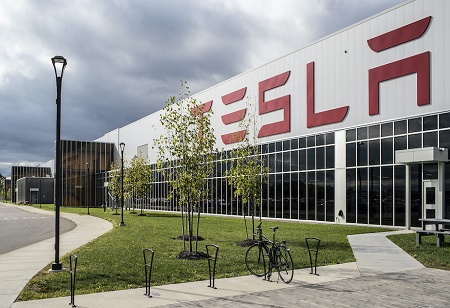
Tesla Inc has sought for regulatory approval to expand its Shanghai facility and begin producing pouch-type battery cells for the first time, albeit in limited quantities.
According to an undated public notification, the possible expansion would allow the Shanghai Gigafactory to produce 1.75 million powertrain units per year, up from 1.25 million today.
It was unclear from the notice, which was placed on the district's website, if Tesla is committed to following forward with the expansion or is merely seeking approval for prospective, future capacity.
The notification also stated that the automaker is seeking approval to build pouch-type battery cells, and that a trial production line would have an initial annual capacity of 20,000-amp-hours of cells, similar to the power in a single Model Y battery pack.
Pouch cells, which are often used in consumer electronics, differ from the cells used by Tesla in that the battery components are housed in a more flexible metal bag rather than a hard cylinder. Some automakers, including General Motors, use them.
Tesla is also planning to build new facilities to recover chemicals used in the plant's waste-water treatment.
The notice, which is part of a routine procedure for environmental approval in China, stated that Tesla is seeking public feedback on the proposed expansion's environmental impact until Wednesday.
In 2022, Tesla's Shanghai facility, its largest in the world, produced over 726,000 Model 3 and Model Y vehicles, accounting for more than half of the automaker's global sales.
Tesla is also looking to increase manufacturing of cylindrical 4680 battery cells in China and has hired new suppliers to lower prices.
Tesla also announced last month that it would construct a facility in Shanghai to produce Megapacks, commercial energy storage units that can be used to store power from renewable sources such as solar.
Before installation, each Megapack costs around $1.9 million.

